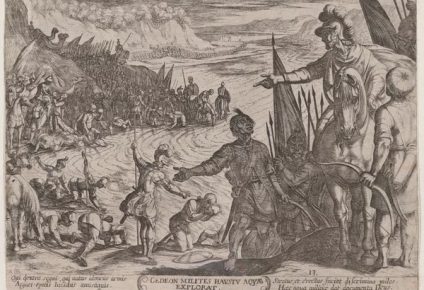Supposed Contradiction: In [Matthew 5:17-18], Jesus did not come to abolish the law, But in [Ephesians 2:13-15], Jesus abolished the law of Moses
Questioned verses:
[Matthew 5:17-18 & Luke 16:17] Do not think that I came to abolish the Law or the Prophets; I did not come to abolish but to fulfill. “For truly I say to you, until heaven and earth pass away, not the smallest letter or stroke shall pass from the Law until all is accomplished
Contradict with
[Ephesians 2:14-15] In his body he has made Jewish and non-Jewish people one by breaking down the wall of hostility that kept them apart. He brought an end to the commandments and demands found in Moses’ Teachings so that he could take Jewish and non-Jewish people and create one new humanity in himself. So he made peace
[Hebrews 7:18-19] The former requirements are rejected because they are weak and useless. Moses’ Teachings couldn’t accomplish everything that God required. But we have something else that gives us greater confidence and allows us to approach God.
ANSWER: In [Matthew 5:17-18], Jesus does not say, “I uphold the law,” but merely says He came to fulfill all the things that were written about Him in Tanakh (Old Testament) being the Messiah, prophet or messenger, savior, etc.. Kindly read the supporting verses below:
[Luke 24:44] “These are my words which I spoke to you while I was still with you, that all things which are written about Me in the Law of Moses and the Prophets and the Psalms must be fulfilled”
[Matthew 26:53-54] Are you not aware that I can call on My Father, and He will at once put at my disposal more than twelve legions of angels? But how then would the Scriptures be fulfilled that say it must happen this way?”
On the other hand, [Ephesians 2:14-15] does not say all the laws of Moses are abolished, but some of the demands found in Moses’ Teachings. Because there are laws of Moses that are intended only for the Israelites especially when it comes to cleansing and atonement rituals such as circumcision, animal sacrifice, food prohibition, and others. These mentioned Mosaic demands make the Jews separated from non-Jews. Jesus Christ, being our ultimate sacrificial lamb to God, the purifier of the world, superseded all these cleansing and atonement rituals. Circumcision is no longer necessary to the Church, animal sacrifice is no longer performed by us, impure animals that were forbidden to eat before were already purified by Him [Acts 10:15]. And because of this sacrifice and purification through Jesus, the Jewish and non-Jewish became one Church or humanity. The arrival of Jesus is also the arrival of the New Covenant, the everlasting covenant, which is intended for all peoples. This is to fulfill what God had promised roughly 700 hundred years before Jesus;
[Jeremiah 31:31-32] “The days are coming,” declares the LORD, “when I will make a new covenant with the people of Israel and with the people of Judah. It will not be like the covenant I made with their ancestors when I took them by the hand to lead them out of Egypt, because they broke my covenant, though I was a husband to them,” declares the LORD.
But when it comes to the Moral teachings, the Ten Commandments, and prophecies; Jesus confirmed them.
While in [Hebrews 7:18-19], it says that the Former Law is useless not in the sense that it’s wrong, but it is impossible for us to follow it. The one who can have eternal life is only the perfect or sinless man (Psalm 37:37 & Revelation 21:27), therefore it is impossible for us to enter into Heaven since mankind fell to sin. Because of our sinful nature, our body is weakened to combat the urges of sins. But in the New law or Covenant, Jesus is our perfecter and justifier of faith, thus very possible for us to follow it and enter the kingdom of God. Kindly read;
[Hebrews 12:2] Let us fix our eyes on Jesus, the author and perfecter of our faith, who for the joy set before Him endured the cross, scorning its shame, and sat down at the right hand of the throne of God.
[Romans 3:26] to demonstrate at the present time His righteousness, that He might be just and the justifier of the one who has faith in Jesus.
[Romans 8:3]
New International Version
For what the law was powerless to do because it was weakened by the flesh, God did by sending his own Son in the likeness of sinful flesh to be a sin offering. And so he condemned sin in the flesh,
New Living Translation
The law of Moses was unable to save us because of the weakness of our sinful nature. So God did what the law could not do. He sent his own Son in a body like the bodies we sinners have. And in that body God declared an end to sin’s control over us by giving his Son as a sacrifice for our sins.
GOD’S WORD® Translation
It is impossible to do what God’s standards demand because of the weakness our human nature has. But God sent his Son to have a human nature as sinners have and to pay for sin. That way God condemned sin in our corrupt nature.
Amplified Bible
For what the Law could not do [that is, overcome sin and remove its penalty, its power] being weakened by the flesh [man’s nature without the Holy Spirit], God did: He sent His own Son in the likeness of sinful man as an offering for sin. And He condemned sin in the flesh [subdued it and overcame it in the person of His own Son]
∼ο∼
ALSO READ: My Answers to Muslim Accusations Against Christianity



